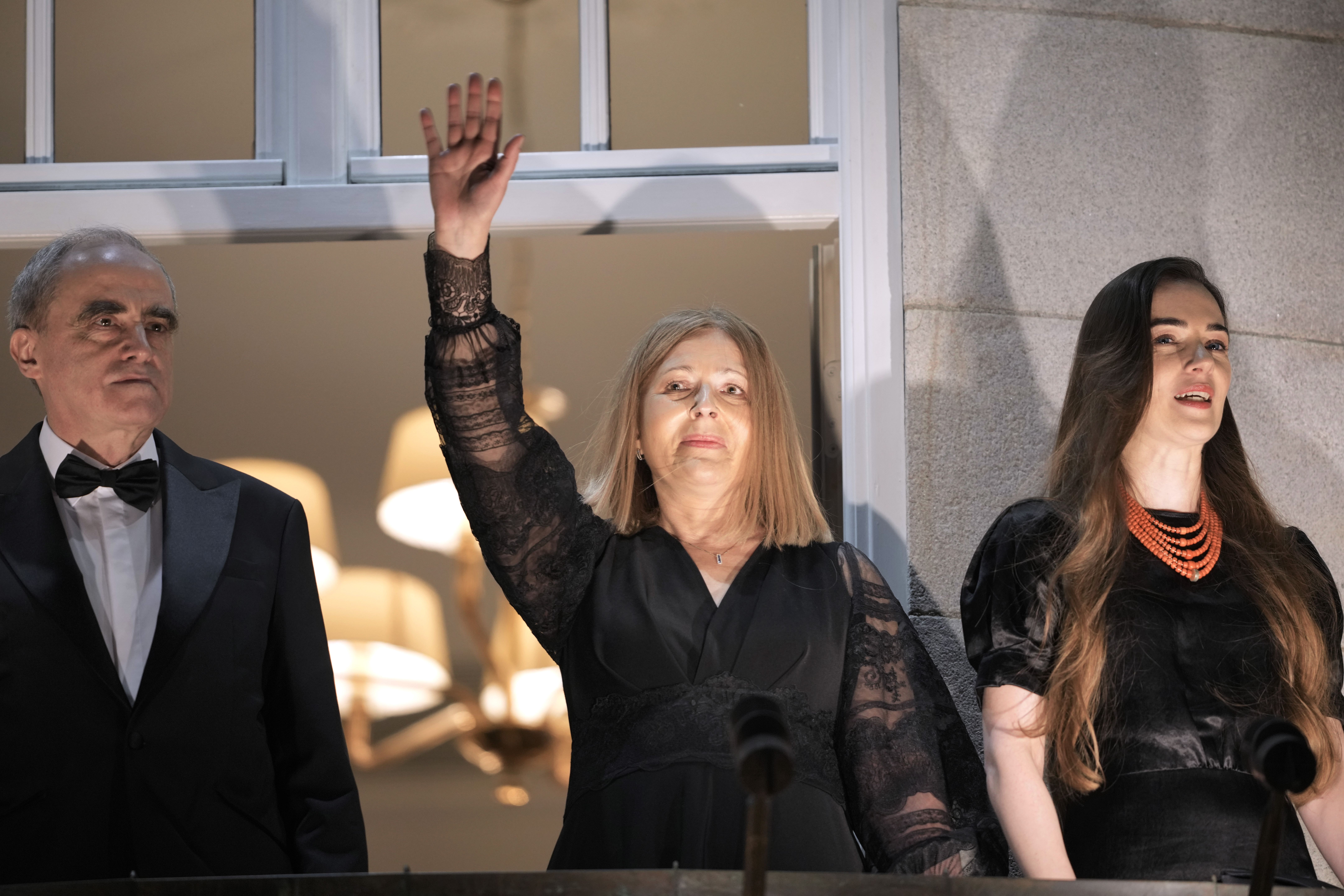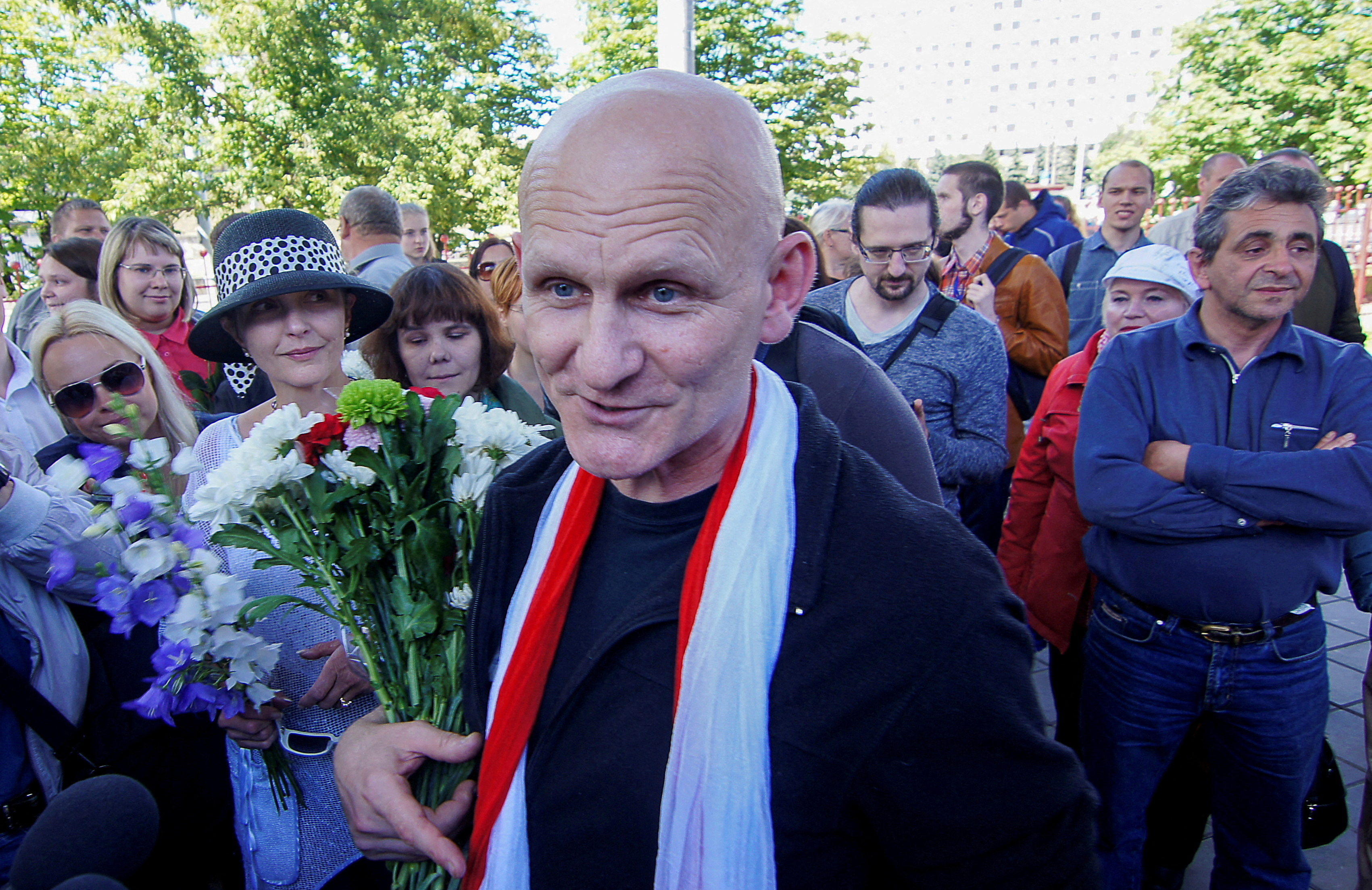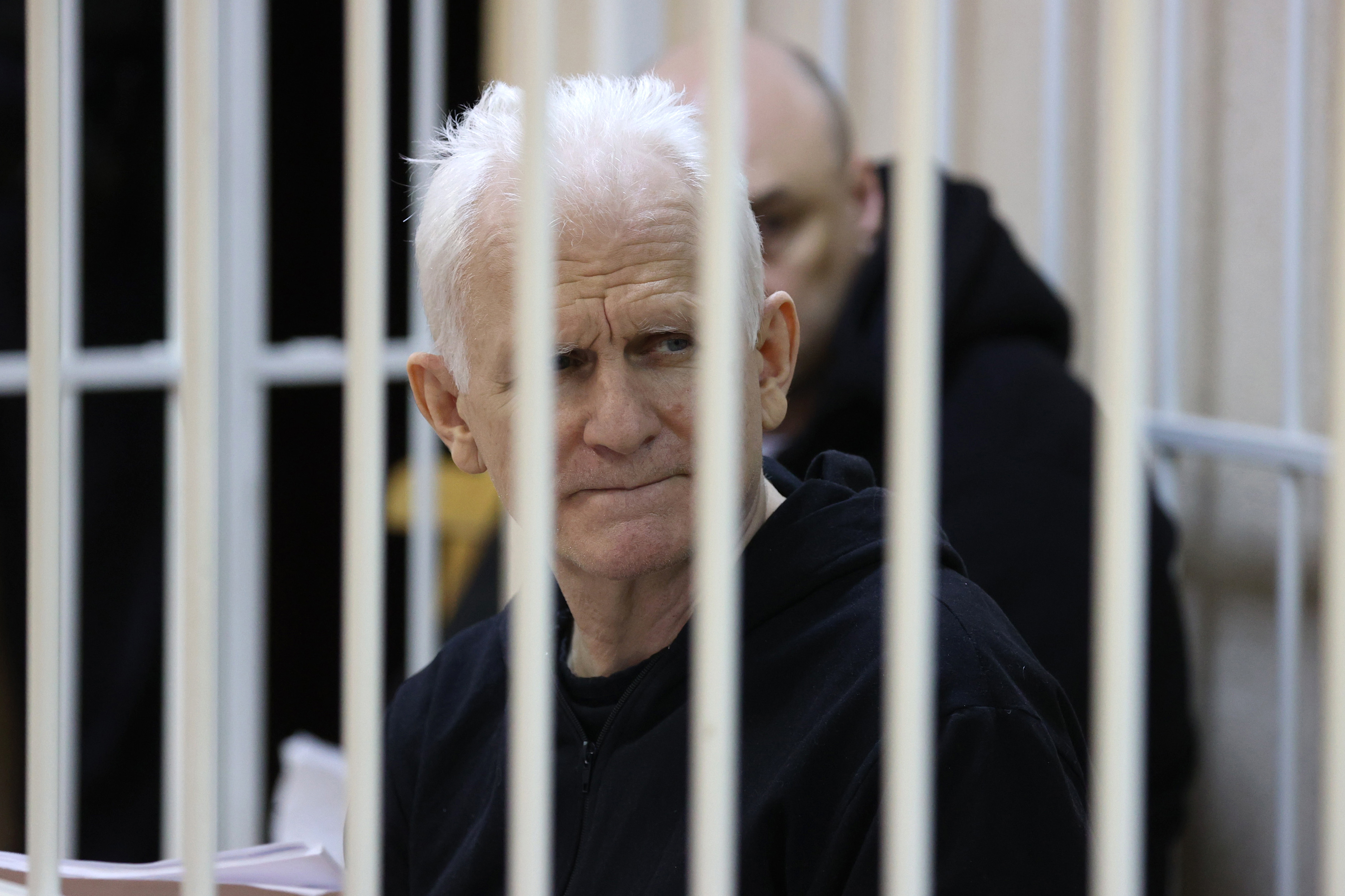
Ales Bialiatski, a human rights advocate, has been sentenced to 10 years in prison by a Belarusian court on charges of financing protests and smuggling money into Belarus.
He denied the charges, which he and other human rights activists called politically motivated.
But who is Bialiatski? Here is what we know.
Nobel Prize
Bialiatski, 60, won the 2022 Nobel Peace Prize together with the Russian human rights organisation Memorial and the Ukrainian human rights organisation, the Center for Civil Liberties.
Fellow human rights campaigners portray him as a symbol of resistance to oppression in Belarus and globally.
Natalia Pinchuk, Bialiatski’s wife, accepted the award on behalf of her husband and, on December 10, said the mission of defending civil rights is “risky”.
“Ales is not the only one to be in jail; thousands of Belarusians, tens of thousands of those who are repressed, unjustly imprisoned for their civic actions and beliefs, are in prison, and hundreds of thousands have been forced to flee the country for the mere reason that they wanted to live in a democratic state,” Pinchuk said.
Bialiatski is the fourth person to win the Nobel Peace Prize while in prison.

Rights and pro-democracy activist
Bialiatski has been leading a pro-democracy movement in Belarus since the mid-1980s.
He started campaigning for Belarusian independence and democracy and organised anti-Soviet protests before the Soviet Union’s collapse.
In 1996, he founded Belarus’s most prominent human rights organisation, Viasna, following controversial constitutional changes by longtime President Alexander Lukashenko.
Through Viasna, which translates to “Spring”, Bialiatski provided financial and legal support to jailed demonstrators and their families while he also documented authorities’ use of torture and abuse of political prisoners.
Belarus has dismissed the allegations.

Prison
Bialiatski was imprisoned from 2011 to 2014 on a charge of tax evasion in the funding of Viasna, a charge he denied.
In 2020, as Belarus saw a new wave of mass demonstrations against Lukashenko’s latest election, Viasna meticulously tracked the numbers of people arrested at protests and during police raids across the country.
Bialiatski was arrested again in 2021 on tax evasion charges, a move that Lukashenko’s critics described as a tactic to silence his work.
“Bialiatski became the symbol of the global fight against tyranny and for the rights of ordinary people, of Belarusians,” Franak Viacorka, a Belarusian opposition politician and senior adviser to Sviatlana Tsikhanouskaya, the leader of the Belarusian Democratic Movement, told Al Jazeera.

Trial
Bialiatski and two others went on trial in January on charges of “smuggling by an organised group” and “financing of group actions grossly violating the public order”.
Amnesty International called it “a blatant act of injustice wherein the state is clearly seeking to enact revenge for their activism”.

Scholar
Bialiatski was born on September 25, 1962 and graduated from Gomel State University in 1984 with a Russian and Belarusian Philology degree.
After initially working as a teacher, he became a scholar of Belarusian literature and a museum director.







